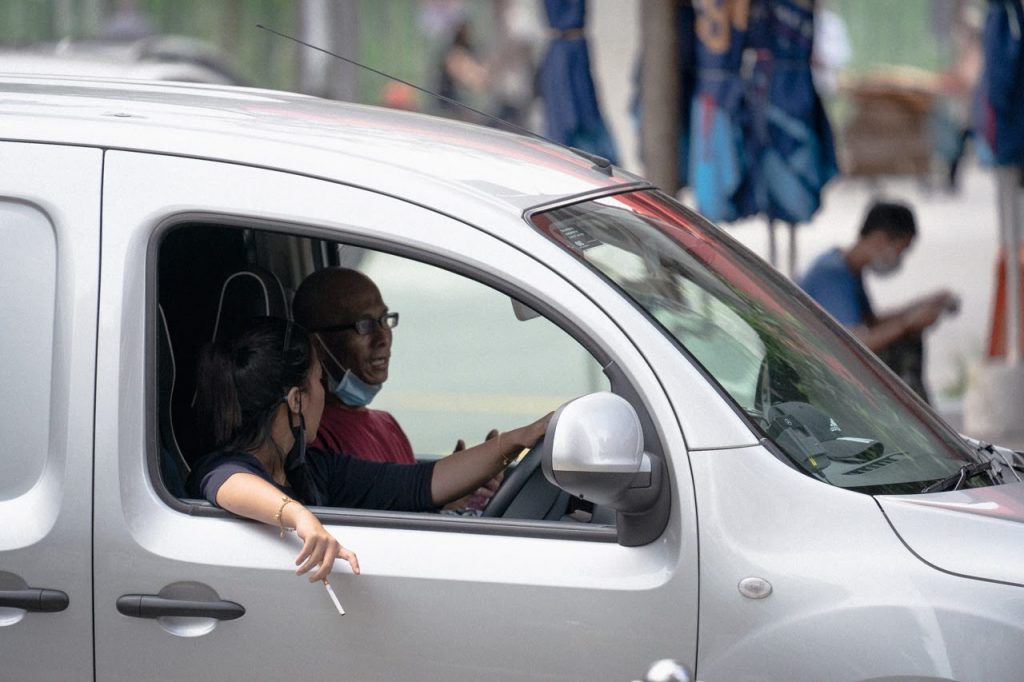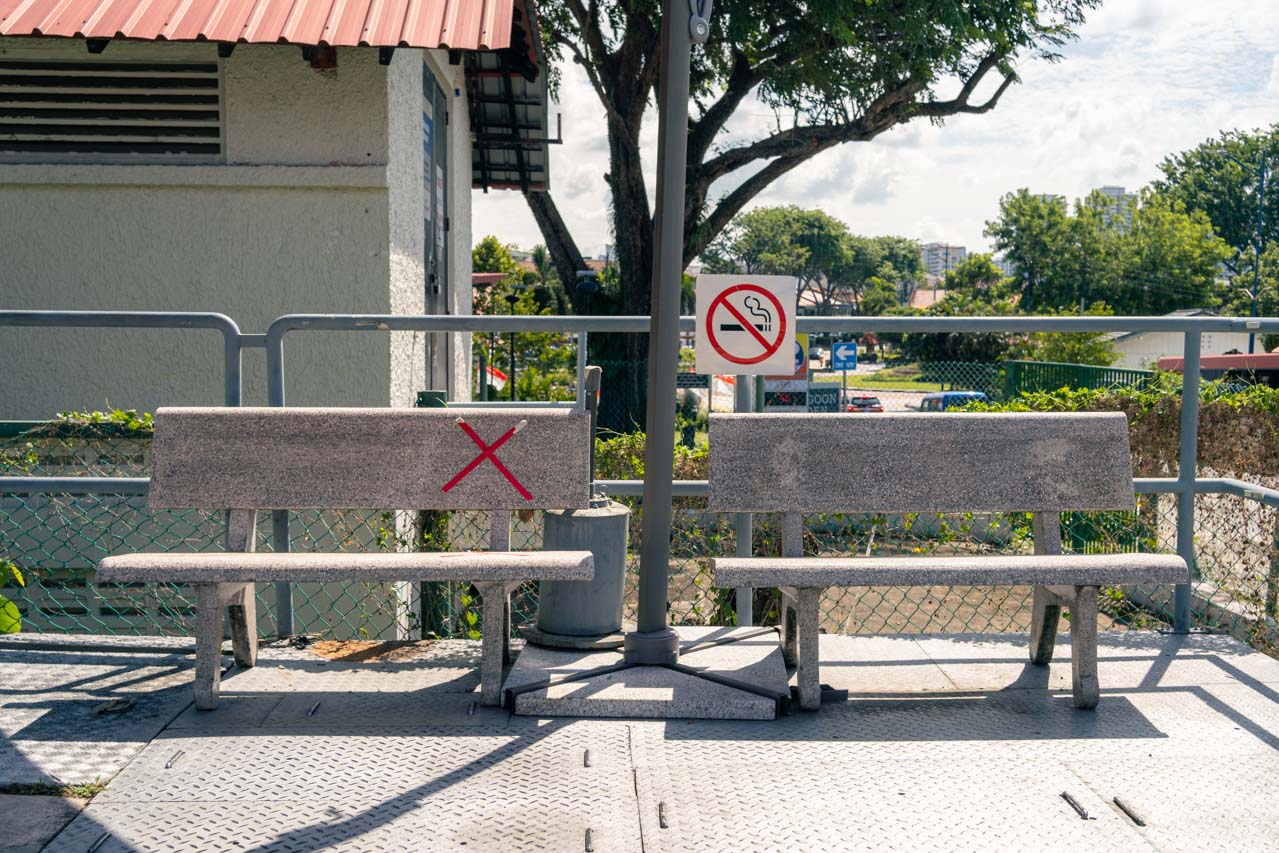Top Image: Stephanie Lee / RICE File Photo
Around 550,000 smokers across Singapore suddenly have to pay more for their regular doses of tobacco and nicotine. A regular pack of 20 Marlboro sticks, which was $14 before, will now cost $15.52.
Not that it matters much; smokers will keep on smoking. It’s how they’ll get their kicks and what they’ll be sucking on that will shift a lot more.
Honestly, increasing the excise duty for all tobacco products has always been in the cards. But 15 percent is pretty drastic, considering the last times Singapore raised the tobacco tax in 2018 and 2014 were by 10 percent each time.
Then there’s also the dramatic effect of the tax hike taking place pretty much immediately. Smokers only have a sliver of time to hoard a stash of cigarettes before retailers make permanent price adjustments.
The increase is expected to generate about $100 million in additional revenue per year, Finance Minister Lawrence Wong declared in his Budget 2023 speech —a deliberate move to discourage consumption. And if it happens to pad a rocky economic outlook, all the better for the country.
Still, there are some unanswered questions. What would be the opportunity cost for tax revenue when smokers are simply half an hour away from another country where cigarettes are sold much cheaper? How much more resources will we need to spend on enforcement to offset the loss to illicit trade?

Modern Problems, Modern Solutions
Don’t get me wrong; anything that has an impact on deterring new smokers from picking up the habit is a good thing. Measures to prevent non-smokers and youth from getting access to those products—it’s a step in the right direction.
As for tobacco taxes, Senior Minister of State for Health Koh Poh Koon mentioned before in Parliament that it’s the most effective measure to reduce smoking rates in Singapore. As proof, there’s been a steady decline in smoking prevalence over the years, from 13.9 per cent in 2010 to 11.8 percent in 2017 and 10.1 percent in 2020, according to the Ministry of Health.
But ask around kids these days—do they actually like smoking? I mean I did in my awkward youth at least. Smoking corners are sacred spaces where you break the ice with acquaintances; smoking sessions with teh, kopi (or something stronger) are how you bond with friends. Feeling awkward by yourself at a party where you don’t know anyone? Light up a cigarette and choke the social anxiety with smoke.

Now though, there’s no reason to lose sleep about tobacco tax increases—heck, increase it by 50 percent if they want. Why worry when easily-accessible black markets offer an alternative that’s cheaper, tastier, convenient and doesn’t leave a nasty smell on clothes?
Ask young folks today; they’re all vaping instead of smoking. No longer is there any need for the hassle of heading out for a smoke when they can just suck on an e-cigarette indoors. Not to mention its a lot easier to pick up the habit too, considering the gamut of palatable (but nicotine-laced) flavours.
The Question of Tax Effectiveness
Sure, they’re outrightly illegal in Singapore, but it hasn’t worked the way it was intended. Vaping is the new smoking, and youths seem to get their hands on devices anywhere—even in neighbourhood malls.
“With the ease of acquiring vaping products from various channels, it might push some youth to try it for the first time since they are priced out of purchasing cigarettes,” says pharmacist and smoking cessation counsellor Sean Ang.
“A small percentage might start to seek sources for contraband cigarettes, but I do not think that is going to be very significant, as compared to those who would look to try vaping.”
All the tobacco tax hike does is (a) ensure that current vapers don’t go analog with cigarettes and (b) drive smokers to the black market to pick up a different habit. Not to mention that it’ll just hurt independent convenience stores, where cigarettes are their main selling point.
Speaking from his 13 years of experience working with smokers, the impact of the tax might even be bigger for youths than adults, Sean offers.
“For the youth and perhaps the lower socioeconomic population, this might be a reason to quit. For this group of adults—and especially the youth that I see—costs do play a part in those who have decided to quit smoking.”

In Sean’s experience, going for their wallets might not affect smoking prevalence among most adults. On the flipside, it’s motivation for smokers who find it hard to quit to switch to something that’s not subjected to regulatory scrutiny.
“In my experience, my clients might complain about it for a while, but if they are of the group that cannot quit or are unwilling to quit, they will still pay the extra amount to get their tobacco fix,” Sean explains.
“A small percentage might start to seek sources for contraband cigarettes, but I do not think that is going to be very significant, as compared to those who would look to try vaping.”
This begs the question: Is a tax hike an effective way to reduce tobacco consumption? How much of the revenue actually goes into helping smokers quit?
Public education, cessation programmes and enforcement can only do so much to help smokers. But where nicotine addiction is concerned, it’s a valid question to consider if harm reduction is a better strategy than hardline harm eradication.







